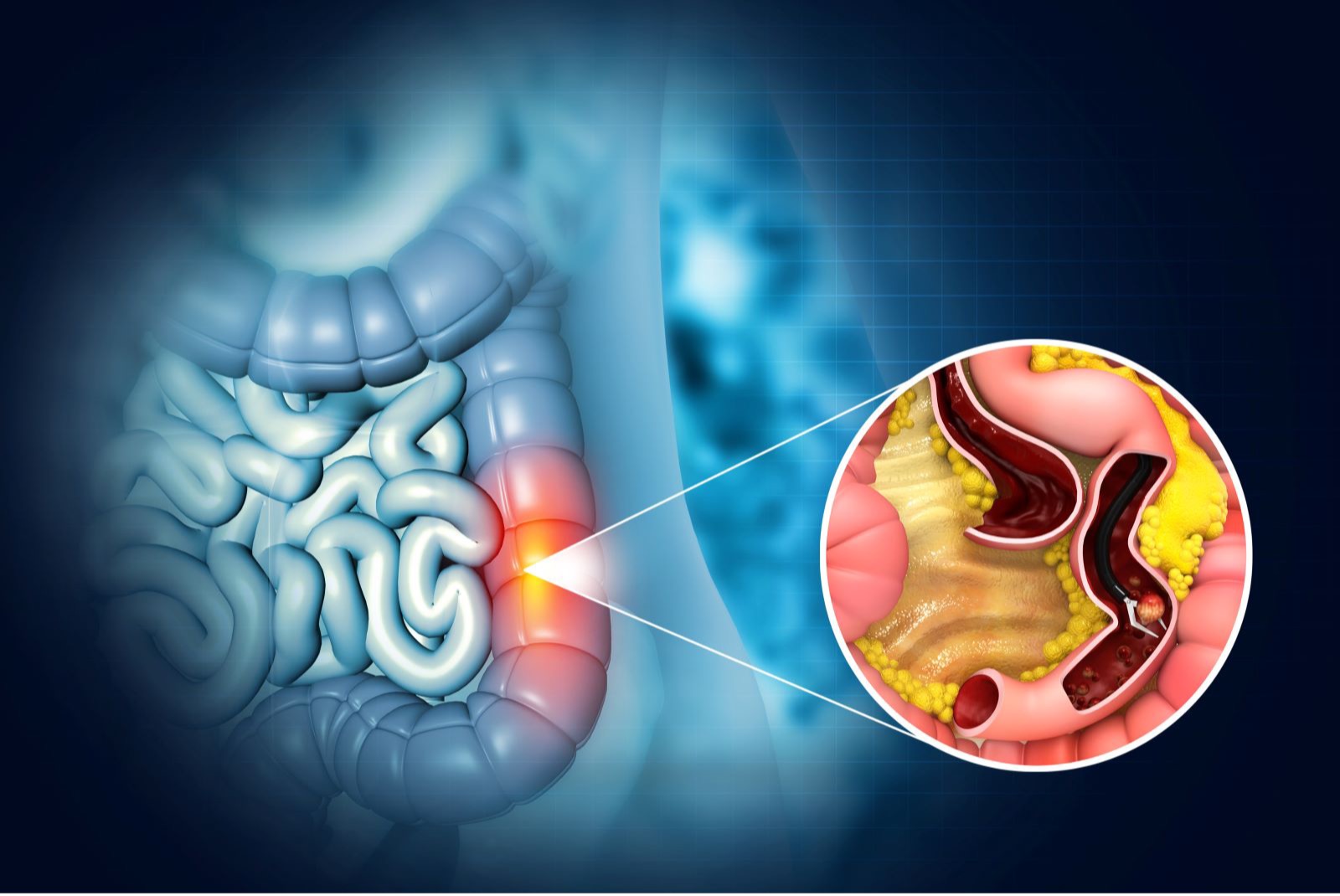
What Should I Know About Colon Cancer?
Colon cancer (or bowel cancer or colorectal cancer), is highly preventable and curable, despite being the world’s third-most common cancer. The key lies in early detection, something the Best Gastroenterologists in Dubai takes seriously. Colonoscopy screening can greatly lower the chance of getting colorectal cancer. Keep in mind that colorectal cancer is one of the most preventable types of cancer, so why wait?
Here’s why getting a colon cancer checkup at Healthbay is your best bet:
- 10% of all cancers, making it a significant health concern.
- 2nd leading cause of cancer deaths globally, highlighting its severity.
- It can also affect younger people, with 10% of cases occurring before the age of 50.
The Threat:
Risk factors for colon cancer
The risk factors for colon cancer can be classified into two categories: modifiable and non-modifiable.
-
Non-modifiable risk factors such as:
- Age. Remember, colon cancer can occur at any age; however, people aged 45 and older are at higher risk
- Personal history of colon polyps or small tumors within the colon
- Family history of colorectal cancer
- Genetic disorders
- Certain medical conditions such as Type II diabetes and ulcerative colitis
- High consumption of processed meats
- Low consumption of fruits and vegetables
- an inactive or sedentary lifestyle
- Obesity
- Smoking
- excessive alcohol consumption
Modifiable risk factors:
How does Colon Cancer develop?
One of the risk factors for colon cancer is polyps, or small tumors or masses within the colon. So, what exactly are polyps? Polyps are small clusters of cells or small tumors or masses in the colon. They can appear as small bumps on the inside lining of the colon.
Generally, polyps are not cancerous, but some have the potential to become cancerous over time and for this reason, finding and removing polyps can prevent colorectal cancer. Polyps do not usually cause any symptoms.
- Diarrhea or an unexplained change in bowel habit
- Blood in the stool
- Abdominal pain
- Unexplained weight loss
- Fatigue
- Anemia or low iron levels
Signs and Symptoms of Colon Cancer
When colon cancer is in its early stages, many people do not experience symptoms and so may be unaware of the disease.
-
However, as the cancer advances, common symptoms include:
Don’t Wait Until It’s Too Late: Protect Yourself with Early Detection
Colon cancer screening is an essential part of preventive healthcare. It helps in the early detection and treatment of colon cancer. Several tests are available for screening colon cancer, each possessing its own unique benefits and constraints. The two most common tests for colon cancer screening are the Fecal Occult Blood Test (FOBT) and colonoscopy.
Fecal Occult Blood Test (FOBT)
The Fecal Occult Blood Test (FOBT): This test detects hidden (occult) blood in the stool, which can be an early sign of colorectal cancer. It involves collecting a stool sample for examination in a lab. These tests can help identify individuals who may have colorectal cancer or large precancerous polyps, prompting further diagnostic evaluations such as colonoscopy. Remember, occult blood stool tests aren’t foolproof, and a positive result doesn’t always indicate colorectal cancer. Conversely, a negative result does not completely rule out the possibility of cancer.
Colonoscopy Exam
A colonoscopy is a medical procedure where a doctor examines the colon and rectum using a long, flexible tube. Equipped with a light and camera, this tube provides a clear view of the inside. This procedure allows us to evaluate for the presence of polyps and cancer. The procedure is done using deep sedation – so it is completely pain-free.
The advantage of screening colonoscopy is the early detection of polyps in the colon to prevent colon cancer. Not only does it detect cancer, but it also allows for the removal of precancerous polyps, potentially preventing the development of cancer altogether. A colonoscopy procedure is considered the gold standard for colon cancer screening as it allows direct visualization of even small polyps, removal of any polyps detected, and biopsy of any other abnormal tissue.
Consult a healthcare professional to find the right tests and check-ups based on your personal risks and guidelines.
Get started, avail of our FREE Blood in Stool test at any HealthBay Branches. Offer Extended until April 30, 2024, only – or talk to our Gastroenterologists about colonoscopy or any digestive concerns you might have.
For more information or to book an appointment, call 800 4272 or email [email protected] .









